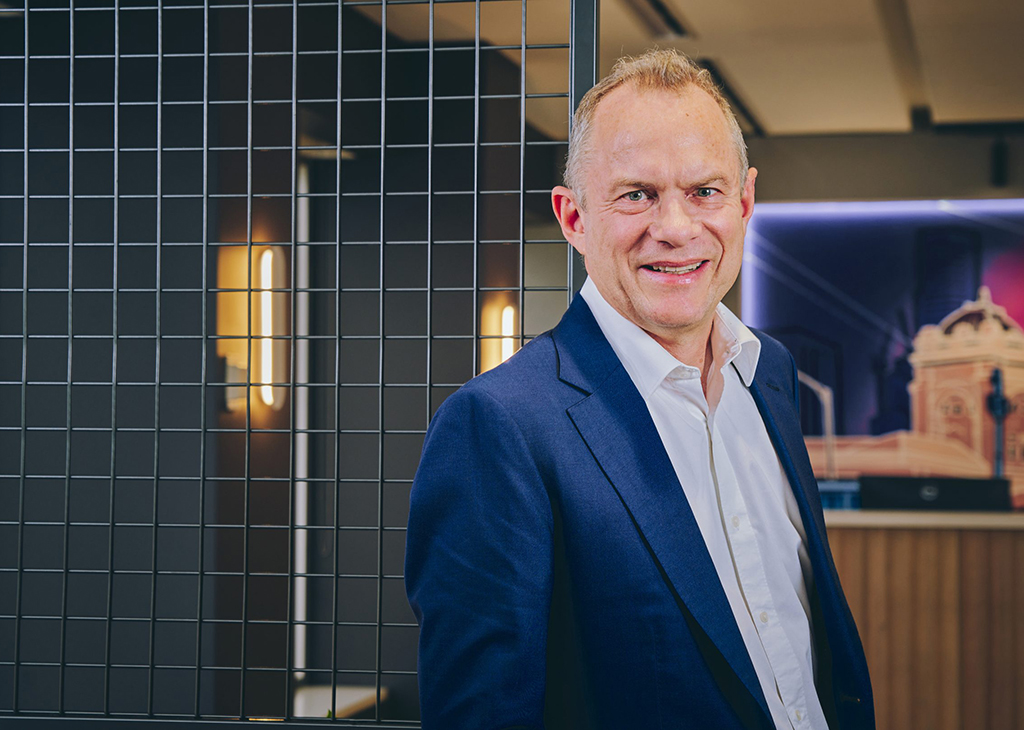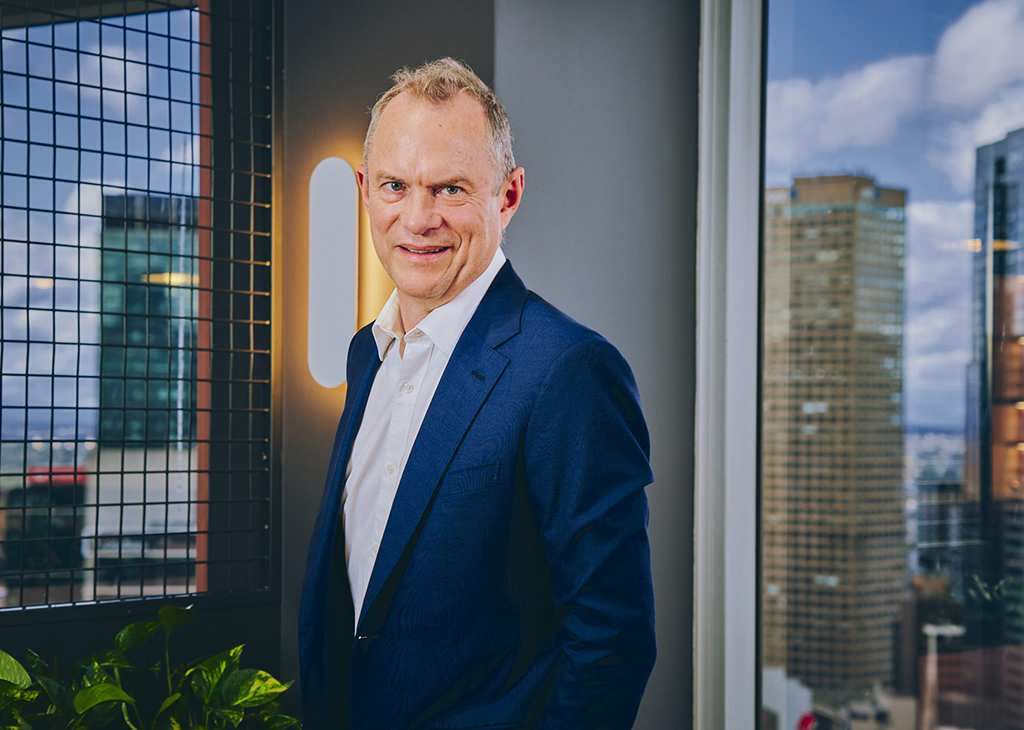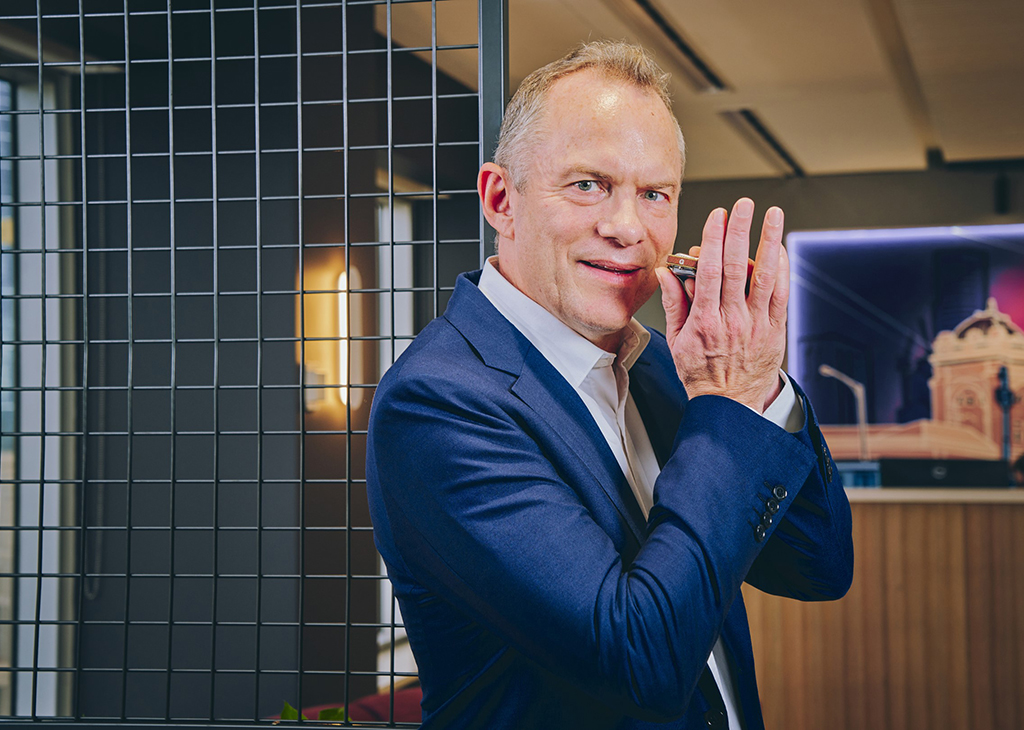The superannuation industry is preparing to meet again in November, with the second ASFA Conference for 2023 in Adelaide and, in these times of rapid transformation, all eyes are on the program.
And as Chair of the Conference Committee, Nick Callil says that when they meet in the boardroom of ASFA’s Sydney offices, the accelerating global, industry and social disruptions are providing more than enough nourishment for a rich menu of speakers and sessions and November will be a timely opportunity for the industry to reconvene.
Mathematics the start of a super career
Amid the excitement of collaborating on the Conference program, Callil also has a day job as Head of Retirement Solutions, Australia, at WTW. His position gives him a unique perspective on one of the industry’s biggest challenges: delivering members great retirement outcomes.
Callil grew up in Brighton, Melbourne, where he excelled at maths. “I’m out and proud as a maths nerd – though these days its more for recreational enjoyment.”
His mother worked in the office of the local school, but Callil gained exposure to business through his father, who worked in the family clothing business, which had been established by Callil’s great-grandfather, an immigrant from Lebanon.
Callil remembers travelling with his father to country towns around Victoria visiting clothes manufacturers. “I saw there were a lot of other migrant families working in those businesses and the hard work it all entailed. That left a mark on me for sure.”
After school, he took an honours degree in pure and applied maths at Monash University. Back then, the finance industry wasn’t hoovering up maths graduates like it later did, but in finance Callil saw a way to use his maths skills in a practical way.
Callil joined TPF&C when he graduated. Ironically, the firm ultimately merged into WTW. “If you’d said to me, ‘in 35 years you’ll be at the same firm’, I would have laughed and disbelieved you.”
Yet there is a reason he has stuck with superannuation for the entirety of his career: its sense of purpose. “It’s doing good for people”.

Photography by Lisa Saad
Superannuation has changed radically during the 35 years Callil has spent in the industry. When he started, he was mainly advising defined benefit funds.
Another huge change has been the rapid consolidation of funds as the industry has matured, which has seen WTW adapt its business model and set up new practice areas.
How do you solve the retirement challenge?
Ten years ago, WTW identified that the retirement phase in the Australian superannuation system was underdeveloped, which allowed Callil to specialise in retirement while keeping his general advisory work.
For a long time, the super industry was slow to address the retirement ‘challenge’.
That was partly because of demographics, which mean that most Australians were in accumulation phase. But also, because, as Callil describes, solving it is hard.
“There are always issues, whether it’s cyber risk or the Covid early release exercise in 2020, which are important issues and have an urgency about them that retirement hasn’t.”
With some five million Australians heading towards, or in, retirement in the next five years, that is now changing, and Callil says retirement is finally getting some traction and attention.
But how does Callil define the ‘retirement challenge?” Is it about a lack of retirement savings?
“I don’t think so,” Callil says, adding that it’s getting Australians to spend their savings in retirement.
“It’s converting these accumulated pots of money into a stream of income that helps people have a great retirement. This fear of running out of money means that, perhaps a bit perversely, people are dying with a large share of their savings left behind.”
Callil’s view reflects the findings of Treasury’s Retirement Income Review, which found that Australian retirees were not spending down their super savings.
In future, more Australians will have enough to retire on, Callil notes. “The Superannuation Guarantee will increase to 12 per cent, and we have an Age Pension system that supplements whatever they have saved.”
“All around the world everyone’s really trying to solve the same problem. This is not just an Australian issue.”
Callil’s perspective on retirement was partly informed by one of his career highlights when Callil had an opportunity to work in India, helping manage WTW’s business for two months.
The Indian retirement system is based on what Callil describes as ‘micropensions’: delivering very small amounts of pensions to vast numbers of Indians.
But what struck Callil was the impact that small sums could still have on people’s lives.
That, he says, has implications for Australia’s concern about small balances and whether they are enough. “Sometimes there is a bit of concern that if you’ve only got $100,000 or $200,000 that’s not enough. “But what the Indian experience reinforced for me is that a small amount applied in the right way can make a huge difference to people’s lives. And we shouldn’t forget that.”
In mid-July, APRA and ASIC released a report on how super funds were implementing the Retirement Income Covenant. It warned that funds were showing a “lack of progress and insufficient urgency”.
“It was a wake-up call, no doubt,” Callil says. “Though the review started only six months or so after the Covenant strategies were due, so perhaps we shouldn’t be too surprised. Taking action in this area does take time.”
But Callil says the industry is acting. They are building up internal resources. Some of the bigger funds, he notes, are appointing an executive with the prime responsibility for retirement as a whole.
“While the appointments at executive level are a positive sign, the next challenge for funds is working out how to marshal their resources to address retirement,” he says. “Do you place all your retirement-focused people into single business function, or do you draw on other resources from across the business. That is still being worked out.”
External product providers and technology providers are also providing better information and support.
But, as mentioned, the retirement challenge is still devilishly hard to solve.
Callil says that retirees face two dimensions of uncertainty: market uncertainty and lifespan uncertainty. “Any one of those risks could make it hard, but with retirement you’ve got the two compounding. So, it’s a very difficult problem to solve.”
“All around the world everyone’s really trying to solve the same problem,” he adds. “This is not just an Australian issue.”
“I think funds are building that trust, but they also need to build out what they offer members and give them a complete experience.”
Helping members through the retirement maze
Callil says the first step, from a member’s point of view, is for funds to develop their role as provider of a ‘trusted home’, which would become the source of all information and support on retirement that members need.
“I think funds are building that trust, but they also need to build out what they offer members and give them a complete experience.”
Another challenge for funds is how they combine elements of product advice (both human and digital) and technology to deliver a positive retirement experience. Funds will combine these elements differently depending on their resources and member demographics, he says, with some aiming for
more human advice-led offerings and others using more technology.
Callil says the Quality of Advice Review is pointing towards greater flexibility. “I hope that continues.”
When it comes to products, such as annuities, Callil says there has also been progress.
He cites the QSuper Lifetime Pension, which delivers members a lifetime income but is not a conventional annuity, as an important development because it was offered by the fund itself, and because it was a “different sort of product”.
“It shows that there is room for innovation here and I think there’s more room for innovation. And we’ll see that coming out from other funds in the next few years.”

The mathematics of inflation and spending for retirees and funds
If retirement couldn’t be more complicated, we are now grappling with higher inflation, which creates further uncertainty.
Callil notes that inflation can hit retirees differently than others. They may be less reliant on public transport because they’re not working, for example, but more reliant on heating because they spend more time indoors.
That inflation uncertainty could be another reason retirees don’t “spend down their pot”.
But Callil says it is not just individual Australians who need to change their mindset around spending more in retirement, but also the funds and regulators.
If there are more retirees and they spend more quickly in retirement so they enjoy a good retirement, that will lead to funds having overall net cash outflows rather than positive inflows.
Callil notes that we have metrics used by funds and regulators “which regard net outflows as a negative flag; a sign that a fund may not be viable”.
“And that’s wrong in my view.”
If we are to transition the super system towards a greater retirement focus, he says, accepting outflows is part of the evolution.
“For some funds, that involves them actually seeing net cash outflows. We shouldn’t give them a bad mark for that. That’s actually their purpose. And it will happen more in the future as the demographics evolve.”
Getting the band back together
Apart from his WTW job and chairing ASFA’s Conference Committee, Callil has also lectured at Macquarie University, advised Treasury, and recently played a role in the 2023 International Congress of Actuaries in Sydney.
Callil says he manages to keep a “pretty good control” on work-life balance. He focuses on areas where he can contribute and avoids committees where he can’t make a difference.
Away from the office Callil keeps close to extended family, recently organising a weekend away with his parents, siblings and spouses and children, a group totaling 20. “We played board games, ate, drank and had fun. Minimal screen time. Just like when we were growing up!”
Callil also acts as manager of his daughter’s football team and is a keen Carlton supporter.
And he moonlights as a guitar and harmonica player in a rock and blues band, Murph and the Magic Tones. After Covid disruption, the band is back playing gigs. While guitar and harmonica have both been lifelong pursuits, the harmonica has been a recent focus. “It’s easy to play but hard to master.”
Music will always be a passion. As will working to improve the retirement system. “I’m happy to keep playing a role in trying to improve the system. What we build now will have an impact on generations of Australians in the future. That’s an important task.”

Finding new ways to improve the super system
The working theme for the November ASFA Conference is “thriving in an environment of change.” “The world’s obviously changing,” Callil says. “We’ve got inflation, economic weakness, a war in Europe. All of that is the backdrop.”
A vital part of the Conference program, therefore, will be examining the complex geopolitical and economic scene. Callil is excited that former Defence Minister, Christopher Pyne and former Deputy Governor of the Reserve Bank Guy Debelle have been secured to provide their insights.
“Within our industry, the change also continues,” he adds. “We’ve got legislative change, the consolidation of funds, the emerging mega-funds, technology, all of these themes are big.”
Callil says the November 2023 Conference will feature diverse and interesting speakers, such as Marisa Hall, Head of the Thinking Ahead Institute, who will talk on themes and issues including how true diversity of thought can lead to better decision making, particularly in an investment framework.
AI is another topic that will be addressed. Legal scholar, ethicist and author Nita Farahany will explore what AI could mean for funds in terms of enhancing member experience while avoiding issues around privacy loss.
“These will be great sessions. And we’ve got some more exciting announcements coming.”




































